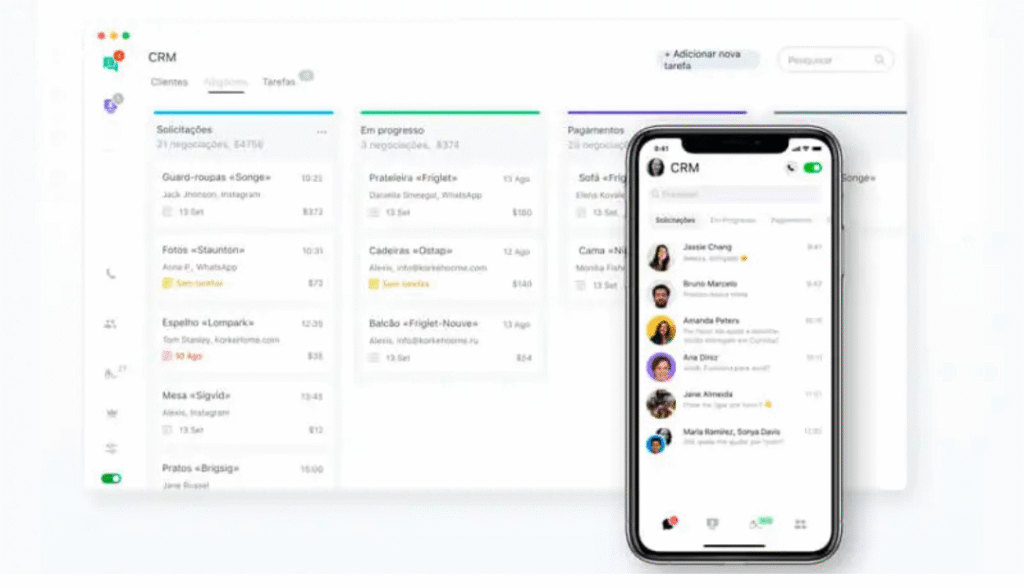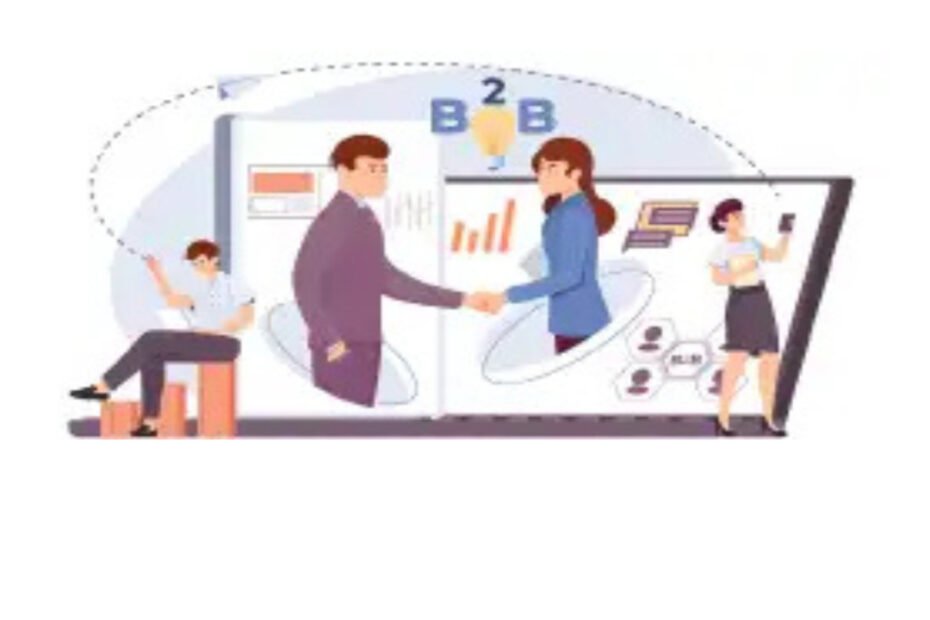Providing good customer service is essential, but when it comes to B2B customer service, expectations are even higher. This is because, in addition to fast service, companies seek strategic solutions that positively impact their results.
Therefore, when dealing with companies as customers, it is essential that customer service be strategic and tailored to the specific needs of this audience, which often has more complex decision-making processes and requires a higher level of personalization.
To help you, in this article, we will explore the main challenges of this type of customer service and share best practices that can make the process more efficient and aligned with the demands of today’s market.
What is B2B customer service?
B2B (business to business) customer service refers to all support and communication offered by one company to another. Unlike B2C customer service, where the focus is on the end consumer, B2B involves longer negotiations, complex business relationships, and multiple decision-making stages.
The goal of this service is not only to solve specific and immediate problems, but also to build and strengthen long-term strategic relationships. This means that your team must offer highly personalized service, focused on the specific needs of each corporate customer.
Key Challenges in B2B Customer Service
Although it is fundamental to the success of many companies, B2B customer service brings with it a number of challenges. Check out some of the main obstacles your team may encounter during the process:
- Complexity of Customer Needs: As we highlighted earlier, each company has its own needs, and meeting them efficiently requires extensive knowledge of the industry, as well as well-designed processes and solutions.
- Managing Expectations: Most B2B customers have high expectations, especially when investing in complex solutions. One of the biggest challenges in B2B customer service is ensuring that these expectations are met or even exceeded.
- Long Sales Cycles: B2B customer service involves longer sales cycles, with multiple decision-makers and negotiation stages. This requires patience, constant alignment, and clear communication between all parties involved.
- Relationship Maintenance: To establish trust and maintain long-term relationships, your company will need to offer after-sales follow-up and efficient customer service.
- Adapting to Market Changes: The B2B market is constantly evolving, with new technologies, regulations, and demands. This means that companies need to adapt their services quickly in order to keep up with these changes without compromising service quality.
Differences Between B2B and B2C Customer Service
Although both are a way of offering support and solutions to a customer base, there are fundamental differences between B2B and B2C customer service. Here are some of these differences:
- Business-to-business (B2B) customer service aims to serve companies seeking solutions for internal processes and other business needs.
- Unlike the B2C market, in B2B, needs are often more complex and require customized solutions.
- Purchasing cycles in the B2B sector tend to be longer and involve multiple decision-makers.
- In B2B service, relationships are built strategically over time, while in the B2C sector, the focus is on quickly winning and retaining customers.
- Communication in B2B tends to be more formal and technical due to the complexity of the products and services offered. In B2C, communication is more direct and emotional.
Types of B2B Customer Service
There are several types of services aimed at companies that guarantee satisfaction and efficient resolution of each customer’s needs. See:
- Technical Support: Aims to resolve specific technical issues, whether related to products or services, to ensure that systems or solutions function correctly.
- Customer Service: Channel focused on administrative issues, answering questions, and ensuring customer satisfaction with the company.
- Help Desk: Specialized support for complex technical issues that aims to resolve situations in real time, usually related to IT and telecommunications.
- After-Sales: Service that aims to ensure that the customer remains satisfied after the purchase, offering ongoing support, training, and identifying opportunities for improvement.
- Customer Success: Focused on ensuring that the customer achieves success and maximum value from the product or service purchased, offering continuous monitoring and strategic guidance.
- Ombudsman: Independent channel for handling complaints and criticism impartially, helping to resolve more complex problems and ensuring continuous service improvement.
Tips for Improving Your B2B Customer Service
Providing good customer service is essential for strengthening relationships with your customers and ensuring they have a positive experience. Here are some tips for improving this process:
1. Understand Each Customer’s Needs
Before offering solutions, it is essential to listen carefully to your customers to understand their real needs and objectives. This approach is the best way to ensure that the solutions offered are relevant and meet the specific expectations and challenges of each company.
This requires your team to invest time in active listening and detailed analysis of each customer’s processes, ensuring personalized responses and more assertive solutions.
2. Train and Empower Your Team
To offer good B2B customer service, it is essential to empower your team through ongoing training on products, communication, and problem solving. This ensures that your operators know how to handle a wide variety of situations in the best possible way.
3. Adopt Automation and CRM Tools
Using automation and CRM tools, such as JivoChat, allows you to keep your customer service organized and optimized. With these tools, you can track the customer lifecycle more efficiently and ensure that the most important information is accessed quickly.
JivoChat CRM offers several features, such as automatic recording of customer interactions, contact categorization, conversation history, and integration with other platforms, which facilitates relationship management and makes customer service more efficient.

4. Be Proactive
Don’t wait for customers to contact you to report a problem. Constantly monitor their experience and, when you identify a potential issue, act proactively. Offer a solution before the problem escalates, demonstrating anticipation and care for the customer’s needs.
5. Personalize Customer Service
Remember, every company is unique, so offer personalized service tailored to the specific needs of each one. The more personalized the service you offer, the greater the chance of building customer loyalty in the short and long term.
6. Focus on Long-Term Relationships
Contrary to what many people think, B2B customer service does not end with the sale. After-sales service is one of the most important stages of the process, especially for companies that want to build lasting relationships with their customers.
Investing in this phase is essential, offering continuous support, personalized follow-up, and specialized technical assistance to ensure that the customer gets the most value from the solution they have purchased.
Ready to Improve Your B2B Customer Service?
We hope this guide has helped clarify the main challenges of B2B customer service, as well as presenting strategies and best practices to improve your customers’ experience. With the right tools, such as JivoChat, and proactive, strategic customer service, your company can strengthen relationships and boost long-term results.

